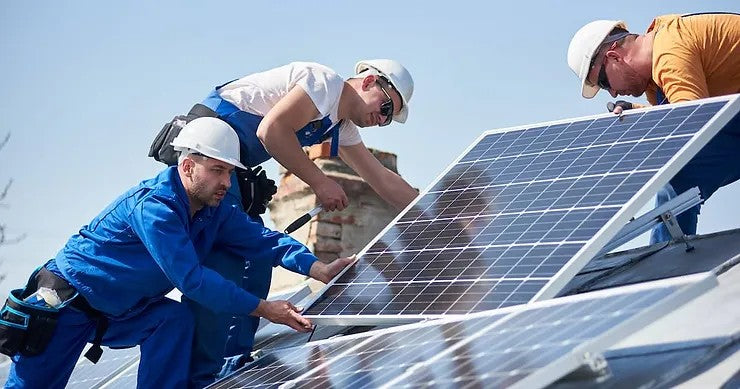
Solar panels have gained significant popularity in recent years as a clean and renewable source of energy. As more individuals and businesses consider adopting solar energy, it is essential to address concerns regarding their potential impact on the environment. In this article, we will explore the environmental aspects of solar panels, providing a balanced perspective to help customers make informed decisions.
1. The Environmental Benefits of Solar Panels
Solar panels are an integral part of the renewable energy revolution, offering numerous environmental benefits. Let's delve into some of the ways solar panels contribute positively to the environment.
a) Reduced Carbon Emissions
One of the most significant advantages of solar panels is their ability to mitigate greenhouse gas emissions. Solar energy production does not release harmful pollutants into the atmosphere, unlike fossil fuels such as coal or natural gas. By generating electricity from sunlight, solar panels help reduce carbon dioxide emissions and combat climate change.
b) Conservation of Natural Resources
Traditional energy sources rely on finite resources like coal, oil, and natural gas, which take millions of years to form. Solar panels, on the other hand, harness the abundant energy from the sun. By utilizing this renewable resource, we reduce the strain on limited fossil fuel reserves, promoting sustainable development.
c) Minimal Water Consumption
Conventional power plants require vast amounts of water for cooling and operation. Solar panels, on the contrary, do not require water for electricity generation. This attribute is especially crucial in regions facing water scarcity, as it minimizes the strain on water resources and helps conserve this precious commodity.
2. Lifecycle Assessment of Solar Panels
While solar panels offer significant environmental benefits during operation, it is important to consider their complete lifecycle impact.
a) Manufacturing Process
The production of solar panels involves the extraction and refinement of raw materials, such as silicon, silver, and aluminum. This process does require energy and may have associated environmental impacts. However, the energy payback period—the time required for a solar panel to generate the same amount of energy used in its production—is relatively short, typically within 1-4 years.
Moreover, advancements in manufacturing techniques and the increasing use of recycled materials are reducing the environmental footprint of solar panel production. Continuous innovation and research strive to make the manufacturing process even more sustainable.
b) End-of-Life Management
Solar panels have a lifespan of 25 to 30 years. After this period, proper end-of-life management is crucial to minimize any potential environmental impact. The majority of solar panel components, such as glass, aluminum, and silicon, can be recycled or repurposed. Additionally, recycling technologies for the recovery of valuable materials from solar panels are continuously improving, reducing waste and resource consumption.
3. Potential Environmental Concerns
While solar panels offer numerous environmental benefits, it is important to acknowledge and address potential concerns.
a) Toxic Materials
Certain solar panel technologies, particularly older ones, use small amounts of toxic materials during production, such as lead or cadmium. However, the industry has made significant strides in developing cleaner and safer solar panel technologies. Most modern solar panels are manufactured using less hazardous materials, minimizing potential risks.
b) Land and Wildlife Impact
Solar farms and large-scale installations require land for their placement, which may have implications for wildlife habitats and ecosystems. However, solar installations can be designed and implemented with careful consideration for local ecosystems. Proper land use planning, habitat preservation, and incorporating pollinator-friendly practices can mitigate any potential negative impacts.
Conclusion
Solar panels have proven to be a clean and sustainable energy solution, offering significant environmental benefits. While there are some concerns associated with their manufacturing and end-of-life management, the industry is continually improving practices to minimize these impacts. As customers looking to embrace solar energy, it is essential to focus on the bigger picture—the positive contribution solar panels make towards reducing carbon emissions, conserving natural resources, and mitigating climate change.
By choosing reputable solar panel manufacturers and working with knowledgeable installers, customers can ensure that the solar energy products they purchase align with their environmental goals. Ultimately, the decision to adopt solar panels is an investment not just in renewable energy but in a greener and more sustainable future for our planet.
Remember, solar panels are not just an environmental choice but also a smart economic one. With decreasing costs and government incentives, solar energy can offer long-term savings and a positive impact on both your wallet and the environment.
So, go ahead and embrace the power of the sun by harnessing the energy of solar panels. Together, we can build a cleaner and more sustainable future for generations to come.


0 Kommentare